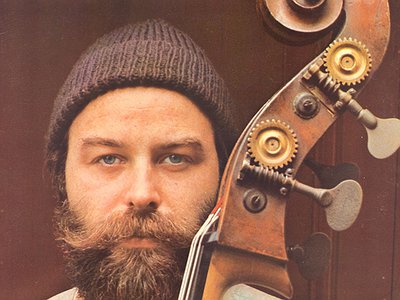Do you feel it important that an audience is able to deduct the processes and ideas behind a work purely on the basis of the music? If so, how do you make them transparent?
The emotional response is most important. But it’s always great when the audience can distinguish between a bad or an excellent art action. It’s not the most important thing, but to be "kind of understood" is a nice feeling for the artist … Besides, I think the artist doesn’t have to make anything transparent, I think the artist doesn't have to "show" the basis of the music. For me, a great artist is one who first makes you appreciate the qualities, but very soon you don’t feel these qualities anymore and you go inside the music and then your mind starts to be free and open.
Usually, it is considered that it is the job of the artist to win over an audience. But listening is also an active, rather than just a passive process. How do you see the role of the listener in the musical communication process?
I am not on stage to win or loose. I am on stage to share with my friends musicians and with the audience what I am able to give through my inspiration. The listener can completely change this process of sharing. When you are on stage, you depend totally on the vibes coming from the audience.
On stage, sharing with your friends makes the music appearing as an entity and sharing that entity with every each listener makes all listeners concerned by that same entity and this make a complete communion’s vibe coming back from the audience to the musicians on stage … And so on …
If the musicians don’t share, there is no music …
If the listeners don’t share, there is no music.
For a good concert you need inspired musicians and a receptive audience!
Music-sharing sites and -blogs as well as a flood of releases in general are presenting both listeners and artists with challenging questions. What's your view on the value of music today? In what way does the abundance of music change our perception of it?
When I was a beginner, there was already an abundance of music and it was already impossible to listen to all of it. In the beginning of the eighties, I was the musical director of a festival in Bretagne and I received hundreds of cassettes … Now, promoters are receiving 1000’s of CDs or emails …
Hundreds or thousands, either way, you don't have the time to listen to everything!
The value of the music to day is the same as before. As soon as the music goes out from the musician, the music become the listener … If … If the different "identities" in between the musicians and the listeners give you a chance…
Please recommend two artists to our readers which you feel deserve their attention.
1) John Scofield.
I know, John is a very well known musician, but very often we don’t “really” listen to famous artists, we think we "know" they are good and their fantastic qualities escape from our listening. Please listen to John Scofield very attentively because he is both great and human.
2) Sébastien Texier.
Usually, by modesty, I don't speak about my son, but it’s quiet difficult to be the son of an artist. Sébastien deserves to be listened to for himself and not only because he is Henri Texier's son. He is a very creative soloist and composer with his own inspiration, sound, and style.




